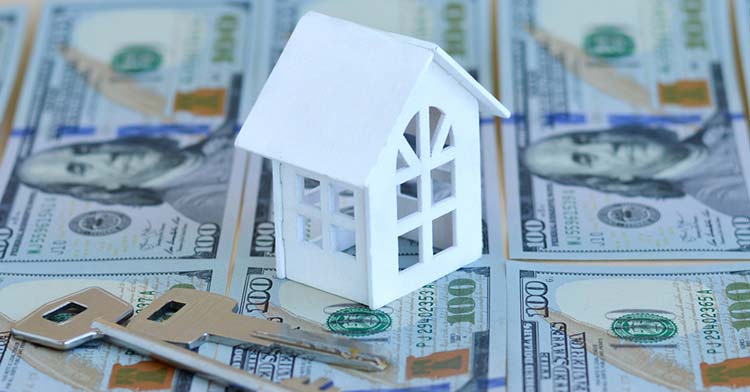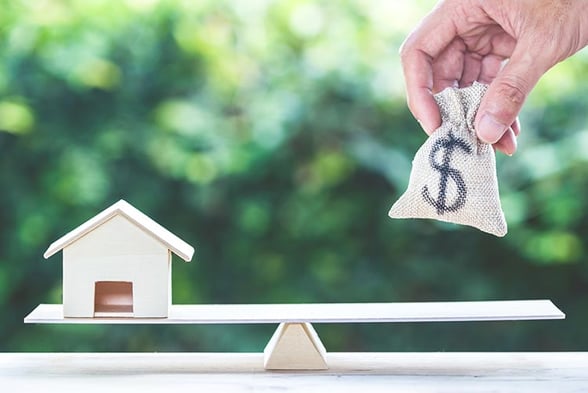Page 20 191 - 200 of 425
Selling 1031 Exchange Property: What You Need to Consider

Using a 1031 exchange to defer the payment of capital gains taxes on the sale of investment property is an attractive tool for many investors. Successful execution of the exchange will allow a taxpayer to defer paying taxes on the capital gain that an investment property has accrued. Naturally, the IRS is specific about what does and doesn't qualify for this favorable tax treatment. Taxpayers must judiciously adhere to the stipulations to reap the benefits.
Can I Buy a Property First and Then Do a 1031 Exchange?

Timing often plays an important role in the acquisition of commercial real estate, especially in competitive markets where properties may receive multiple bid offers from a pool of eager investors.
Do You Have to Replace the Debt in a 1031 Exchange?

When you’re involved in a 1031 exchange, you must invest the proceeds from the sale of your relinquished property into a replacement property (or properties) of greater or equal value. This is important if you want to potentially defer taxes on capital gains or depreciation recapture.
1031 Exchange 5-Year Rule: What You Need to Know

1031 exchanges offer a potentially valuable tool for investors to defer payment of capital gains taxes when selling appreciated assets, as long as they reinvest the proceeds into a "like-kind" asset. Successfully executing a 1031 exchange to dispose of an appreciated property and replace it with another can be a financial advantage for investors.
Can You Do a 1031 Exchange with Syndication?

One of the attractions of investing in real estate is—of course—the profit potential. The earnings may come from income, such as tenant rental payments, and from asset appreciation. The increase in value is a capital gain, and the IRS taxes those gains when the investor realizes them. In most cases, if you sell an investment property for more than its cost basis, you will owe taxes on the difference—that's the gain.
Delayed 1031 Exchange Time Limits: What You Need to Consider

Many investors rely on 26 U.S. Code § 1031 – “Exchange of Real Property Held for Productive Use or Investment” to potentially defer capital gains and depreciation recapture taxes triggered by the sale of real estate.
Can I Buy a Property Overseas with a 1031 Exchange?

A 1031 exchange is a tool taxpayers can use to defer their obligation to pay capital gains taxes when they sell an investment property and reinvest the proceeds. 1031 refers to the relevant section of the tax code, and exchange refers to the swap from one property to another. Regarding a 1031 exchange, it's crucial to understand that the rules surrounding domestic and foreign properties are distinct. While an investor can conduct a like-kind exchange of a U.S. property for another U.S. property, or a foreign property for another foreign property, it's important to note that exchanging a U.S. property for a foreign property is not permissible under Section 1031 of the Internal Revenue Code. Therefore, it's paramount that investors carefully consider their 1031 exchange strategies with this in mind to maintain tax deferment benefits.
How Many Properties Can I Identify In A 1031 Exchange?

Executing a 1031 exchange to defer capital gains taxes when buying and selling an investment property can be a helpful tool for taxpayers. If you sell investment real estate at a profit, you will owe capital gains taxes on any appreciation in the value. Paying those taxes can adversely impact your reinvestment by reducing the amount available. If you structure the sale and purchase using a 1031 exchange, you can defer the payment of the capital gains taxes.
Does a 1031 Exchange Require a 1099-S?

A 1031 exchange involves a lot of paperwork. There are two transactions in the exchange process. One is the closing of the relinquished property, and the other is the acquisition of the replacement property. The exchanger is basically selling and buying a property.
Can I Deduct Closing Costs for a 1031 Exchange?

One reason why real estate can be an attractive investment opportunity is because of the potential deductions involved with owning and maintaining income-generating properties (or those used for business purposes). When it comes time to sell that property, certain closing costs can be deducted (including mortgage interest and pro-rated property taxes).
Page 20 191 - 200 of 425


